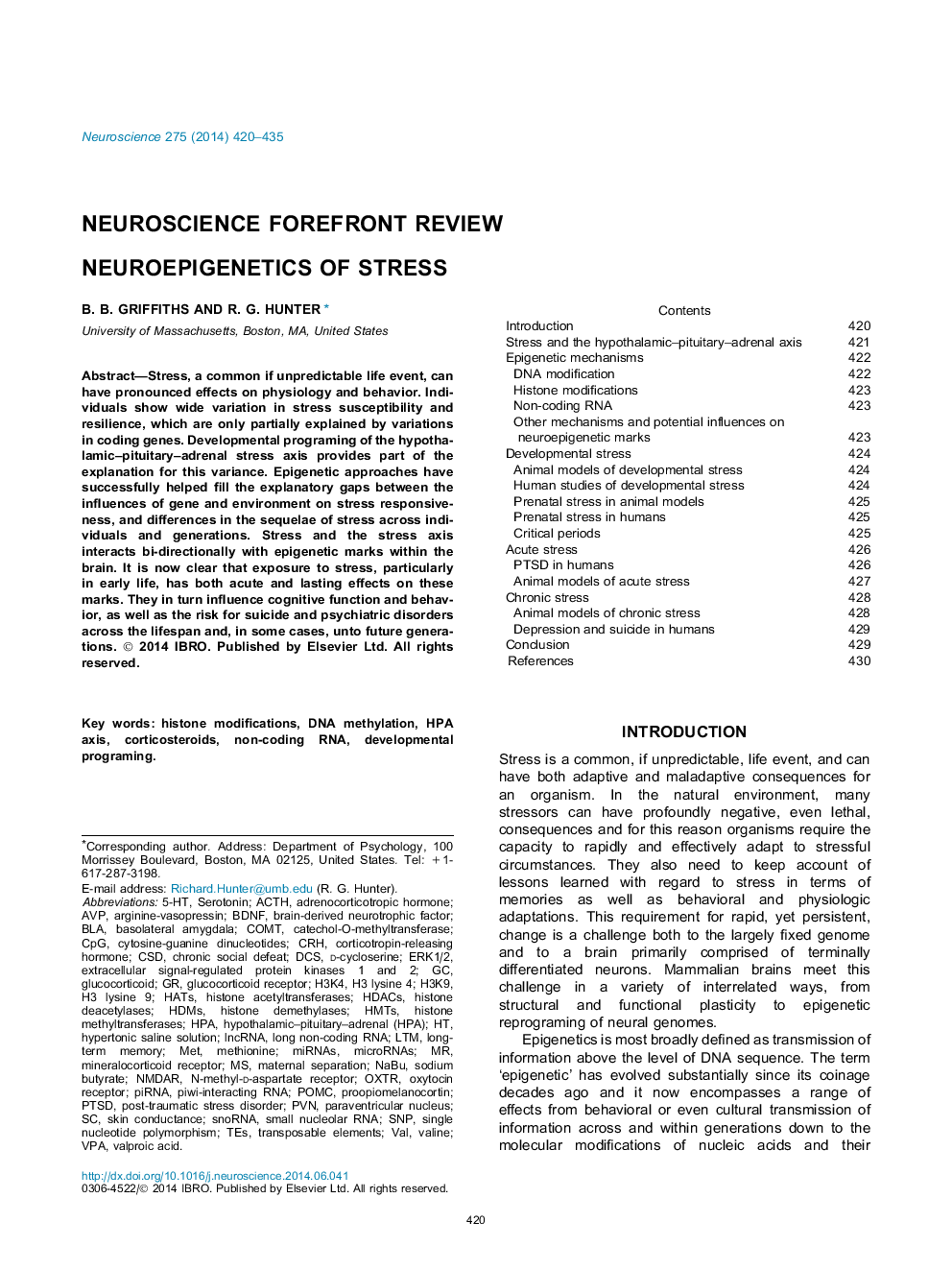| Article ID | Journal | Published Year | Pages | File Type |
|---|---|---|---|---|
| 6273437 | Neuroscience | 2014 | 16 Pages |
Abstract
Stress, a common if unpredictable life event, can have pronounced effects on physiology and behavior. Individuals show wide variation in stress susceptibility and resilience, which are only partially explained by variations in coding genes. Developmental programing of the hypothalamic-pituitary-adrenal stress axis provides part of the explanation for this variance. Epigenetic approaches have successfully helped fill the explanatory gaps between the influences of gene and environment on stress responsiveness, and differences in the sequelae of stress across individuals and generations. Stress and the stress axis interacts bi-directionally with epigenetic marks within the brain. It is now clear that exposure to stress, particularly in early life, has both acute and lasting effects on these marks. They in turn influence cognitive function and behavior, as well as the risk for suicide and psychiatric disorders across the lifespan and, in some cases, unto future generations.
Keywords
COMTCatechol-O-methyltransferaseTESBLANaBuPOMCLTMpiRNACpGACTHCSDd-cycloserinesnoRNAAVPH3K4NMDARDCs5-HTVPAmiRNAsCRHH3K9lncRNAHDACsHMTschronic social defeatbasolateral amygdalaBDNFERK1/2HDMslong non-coding RNANon-coding RNAsmall nucleolar RNAarginine-vasopressinpost-traumatic stress disorderPTSDOxtrHistone modificationsmaternal separationlong-term memoryHypertonic saline solutionmicroRNAsvalSodium butyrateSerotoninTransposable elementsBrain-derived neurotrophic factorPVNDNA methylationMethionineHPA axisMETHPAskin conductanceparaventricular nucleusadrenocorticotropic hormonecorticotropin-releasing hormoneHistone demethylaseshistone deacetylaseshistone acetyltransferaseshistone methyltransferasesValproic acidValineextracellular signal-regulated protein kinases 1 and 2proopiomelanocortinSingle nucleotide polymorphismSNPHATsCorticosteroidspiwi-interacting RNAGlucocorticoidN-methyl-d-aspartate receptoroxytocin receptorMineralocorticoid receptorglucocorticoid receptor
Related Topics
Life Sciences
Neuroscience
Neuroscience (General)
Authors
B.B. Griffiths, R.G. Hunter,
